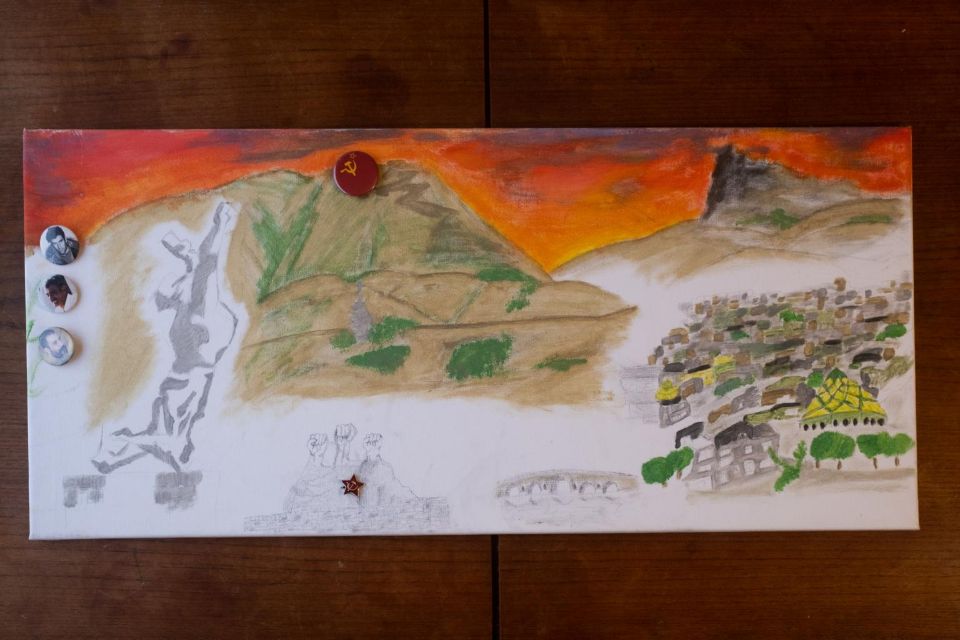The move from Iran
Fardin’s piece of art hangs among the paintings. A view of Sanandaj's main square, where he once resided. It brings back memories of their families, homes, and homeland.
When Haide talks about her past, the first thing she mentions is 'family'. She left behind 21 years of her life in Iran. Family was and is the most important thing to her; her mother, father, sisters, brothers, and Edrina, her now 9-year-old daughter she was forced to leave behind when fleeing Iran. Due to her political and feminist activism, Haide faced imprisonment if she were to be apprehended by Iranian government officials. Haide has been tormented by the fact that she and Edrina haven't seen each other in person since Edrina was eight months old. Of course they communicate and video call, but the distance between them makes the mother-daughter connection feel weird.
Haide and Fardin’s journey began in Iraq, where they sought refuge. It was there that they met for the first time. Next stop was Turkey where every refugee at the time had to go through the same ordeal: crossing the sea to get to Greece. Fifty individuals in total, adults, teenagers, children, and newborns, made their way to Greece on inflatable boats - this was the phase of their journey where death was closer than ever. Haide says that she was terribly shaken by, yet not afraid of the nearby boats sinking in the waves, and that she was '100% positive they would make it to Europe.' The dollars they had taped to the inside of their pants were the only thing that concerned her, as the money was needed to pay the smugglers once they got to Greece. At the end of the boat journey, everything was soaked with water - save for the money.
After that, it was simply 'one stop after another', as Haide puts it. 'Government authorities' advised them to leave Greece and travel to any other European country. The advice was to take the bus, find a ride, check out the railways, or simply stroll! And that was how Haide and Fardin eventually arrived in Austria, where they were divided into groups and transferred to Germany. That brought them to the final stop: they were offered the option of staying in Germany or going anywhere they pleased!
Haide wants to tell me 'a funny story' at this point. When they got to Berlin, they had just 15 euros on them. And by luck, they ended up wandering the streets of Berlin till they came across a Kurdish restaurant. They were given food, a place to sleep for the night, and a free phone call to contact their friends for assistance. Haide phoned a family friend in Cologne, and he sent a buddy to buy them food and two train tickets to the Netherlands. As she describes it, it was a very trying and difficult night for them, having arrived in a foreign country with no money, no place to stay, and no understanding of or ability to communicate in the language.
